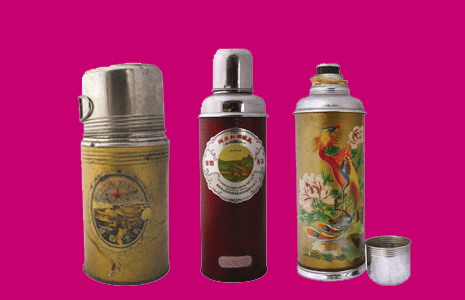
By Dr Eleonora Lupo
The Asian Lifestyle Design Research Lab at PolyU Design provides research service to and generates critical knowledge for designers and industries creating innovative, sustainable products and services for the Asian lifestyle. To further this, it also engages in fundamental and historical research, develops appropriate methodologies for fieldwork and analysis, and seeks collaborations with industrial and academic partners.
The Lab held a forum in October 2008, organized by Dr Eleonora Lupo, Visiting Lecturer and Mr Benny Leong, Assistant Professor and leader of the Lab. The theme “Connecting Design, Cultures, Artifacts, and Heritage” was picked to survey topics that dealt with common processes and structures in making art, culture and design objects; historical and territorial relations among art, design and culture; and strategies of heritage revitalization through culture based design innovation.
Presentations at the Forum revealed wide connections between design, history and innovation based on culture, while exploring design as method and tool to understand and empower local communities and knowledge. Following are excerpts of the dialogue.
‘The Birth of Modern Chinese Design’: research and writing on design with a historical perspective
Dr Jackie Kwok introduced an historical overview about modern Chinese design, showing the relationships of Chinese artifacts with social, economical and geographical factors. Design is considered an inclusive and object making practice with a critical approach on historical times. In particular, focusing on her recent book (“1840-1937. The birth of modern design in China.”), she pointed out how the condition of “being modern” in Chinese design “has been affected by foreign powers invading China and leading a material way to react at such invasions”. Besides this chronological sequence, her research proved that according to the concept of epitémè of Michel Foucault, every historical truth has to be referred and be meaningful to the epoch in which it is produced. Chinese design passed through a process of westernization to modernization. Examples can be found in home appliances, interiors, hygienic products, advertisement, exhibition display, art, type design and so on.
Social innovation as an emerging research topic in design
Dr Xin Xiang Yang proposed a definition of social innovation as change of social life through the influence of design. Realizing common design activities are framed within such studies of progression of economic values and levels of innovation, the move from commodity to experience consumption, and the innovation from product to service/ system design, he proposes a further step towards development of sustainable cultures to be led by social innovation. In other words cultural experiences should be characterized by uniqueness, pleasantness and appropriateness. This extends the concept of human-centered design to cultural based innovation in the direction of sustainability. Cultural aspects become the key factors in “planning and conceptualizing prosperous, diverse, and sustainable social lives through interdisciplinary collaboration and the power of design thinking that supports both scientific discoveries and creative inventions”.
New Trend Flower Board Design – A Pilot Study on the Socio-cultural Development of the Craft Industry in Cheung Chau, Hong Kong
Dr Kith Tsang presented a pilot study on the socio-cultural development of the craft industry in Cheung Chau, one of the outlying Hong Kong islands. The research project points out some undergoing transformations and evolutions of traditional culture and craft production processes, with the hypothesis that “the production of culture (and artifacts) and its inheritance are regulated by the members of the local communities”, according to Paul Du Gay. The issues concerning the inter-relationships of production, identity representation, regulation and consumption are being explored and exploited in different kinds of craft industries like flower board, bun and confectionery, flower bouquet, papier mache and flags present on the island, using anthropology and ethnography observation methods, structured and semi-structured interviews, photographic record and visual and content analysis. Some findings about the flower board trends (“abandonment of 3-dimensional design and use of fresh flower and paper flower, reduction of pictures and hand-drawn motifs, domination of text and the use of fluorescent colours as attraction in order to reduce the production cost, streamline the production process and ease mass production”) concern historical references, semiology of paper boards, use of public spaces and cultural appropriation.
Negotiating identities and cultures through design
Dr Eleonora Lupo introduced the concept of “cultural negotiation” as a possible strategy led by design to revitalise and activate heritage and culture in contemporary practices. Active-action processes imply establishing new relations that connect, in a meaningful and understandable way, between context, heritage and community. They make cultural identity belong to contemporary society to be performed.
“The will to build” has been used as a powerful metaphor to depict this continuous process of cultural transformation according to social, ethical and aesthetical needs without loosing values of the past. Through exemplary projects and research hypotheses, some design processes and tools have been developed. Examples of these are cultural maps that interpret, document and represent a cultural system, territorialization processes that build new relations with assets and local resources, and contextualization processes that develop new applications, services and artifacts that are culture and community centered and context based.
About Asian Lifestyle Design Lab
The Asian Lifestyle Design Research lab undertakes both broad and focused agendas of research. It initiates user-centered research that explores those trends that have relevance to design-driven businesses serving Asian lifestyles, and it investigates the social, cultural, environmental and historical drivers of lifestyle change. In collaboration with industrial and academic partners, it directs specific projects that seek to understand circumstances where new products and services can be developed. The lab is especially active with ethnographic studies in southern China and studies of everyday experience. Its current emphases are domestic life patterns, middle class consumption, sustainable lifestyle, branding, leisure, design development processes, and Chinese traditions of design thinking. The lab is also involved with the development of pragmatic research methods appropriate to Asian settings, and the establishment of support networks for fieldwork and analysis. The lab has synergies with other research i the School that is focused on ergonomics and biometrics, user studies and strategic design.
www.sd.polyu.edu.hk/web/Research/AsianLifestyle




